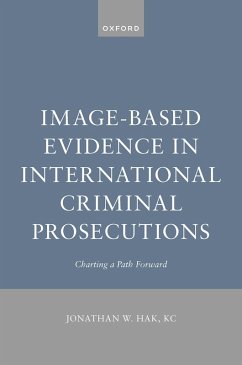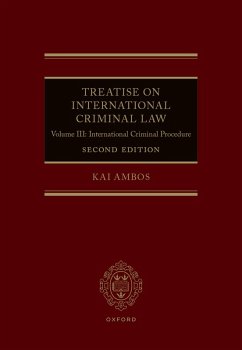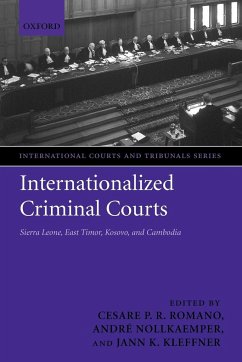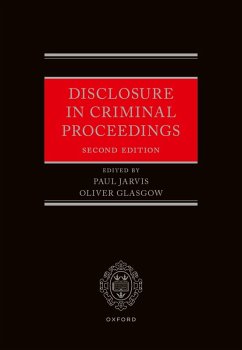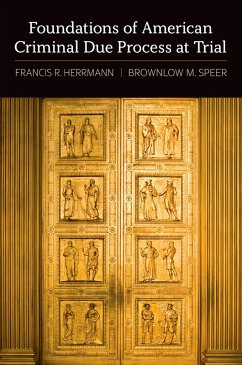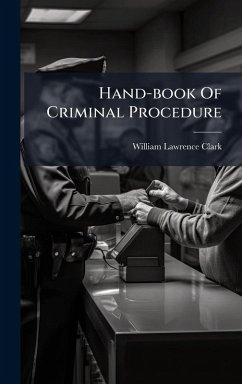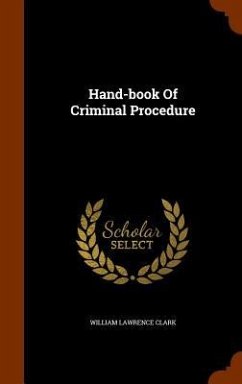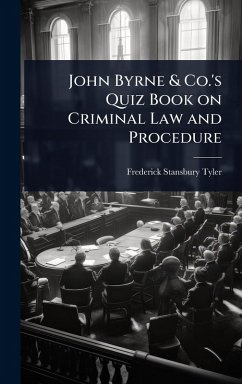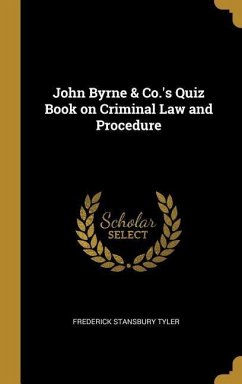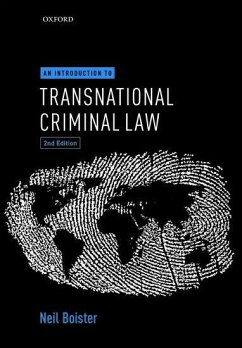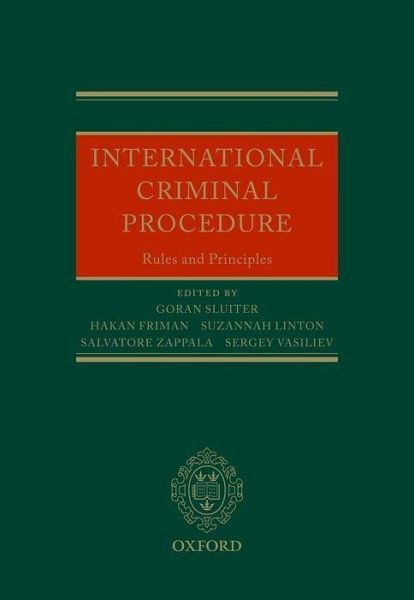
International Criminal Procedure
Principles and Rules
Ed. by Sluiter, Göran; Friman, Håkan; Linton, Suzannah; et al.
Versandkostenfrei!
Versandfertig in über 4 Wochen
753,99 €
inkl. MwSt.

PAYBACK Punkte
377 °P sammeln!
International Criminal Procedure: Principles and Rules is a comprehensive study of international criminal proceedings written by over forty leading experts in the field. The book offers a systematic overview and detailed comparison of the standards governing the conduct of proceedings in all major international and internationalized criminal courts from the Nuremberg and Tokyo Tribunals to the recently established Cambodian Extraordinary Chambers and theSpecial Tribunal for Lebanon.Based on a major research project, the study covers all procedural phases from the initiation of investigation to...
International Criminal Procedure: Principles and Rules is a comprehensive study of international criminal proceedings written by over forty leading experts in the field. The book offers a systematic overview and detailed comparison of the standards governing the conduct of proceedings in all major international and internationalized criminal courts from the Nuremberg and Tokyo Tribunals to the recently established Cambodian Extraordinary Chambers and the
Special Tribunal for Lebanon.
Based on a major research project, the study covers all procedural phases from the initiation of investigation to the appeals process. It pays special attention to the crosscutting themes which shape the contemporary discourse on international criminal justice, including the law of evidence, the defence issues, the procedural role of victims, and negotiated dismissal of international crime cases.
The book not only takes stock of the procedural legacy of the UN ad hoc Tribunals for the former Yugoslavia and Rwanda and the International Criminal Court, but also reflects on the future directions of international criminal procedure. Investigating the tribunals' procedural law and practice through the prism of human rights law, domestic legal traditions, and tribunals' special objectives, the expert group puts forth proposals on how the challenges facing international criminal jurisdictions
can best be met.
International Criminal Procedure will be an indispensable work for practitioners involved in the adjudication of serious crimes on both national and international level, as well as international law students and academics.
Special Tribunal for Lebanon.
Based on a major research project, the study covers all procedural phases from the initiation of investigation to the appeals process. It pays special attention to the crosscutting themes which shape the contemporary discourse on international criminal justice, including the law of evidence, the defence issues, the procedural role of victims, and negotiated dismissal of international crime cases.
The book not only takes stock of the procedural legacy of the UN ad hoc Tribunals for the former Yugoslavia and Rwanda and the International Criminal Court, but also reflects on the future directions of international criminal procedure. Investigating the tribunals' procedural law and practice through the prism of human rights law, domestic legal traditions, and tribunals' special objectives, the expert group puts forth proposals on how the challenges facing international criminal jurisdictions
can best be met.
International Criminal Procedure will be an indispensable work for practitioners involved in the adjudication of serious crimes on both national and international level, as well as international law students and academics.



